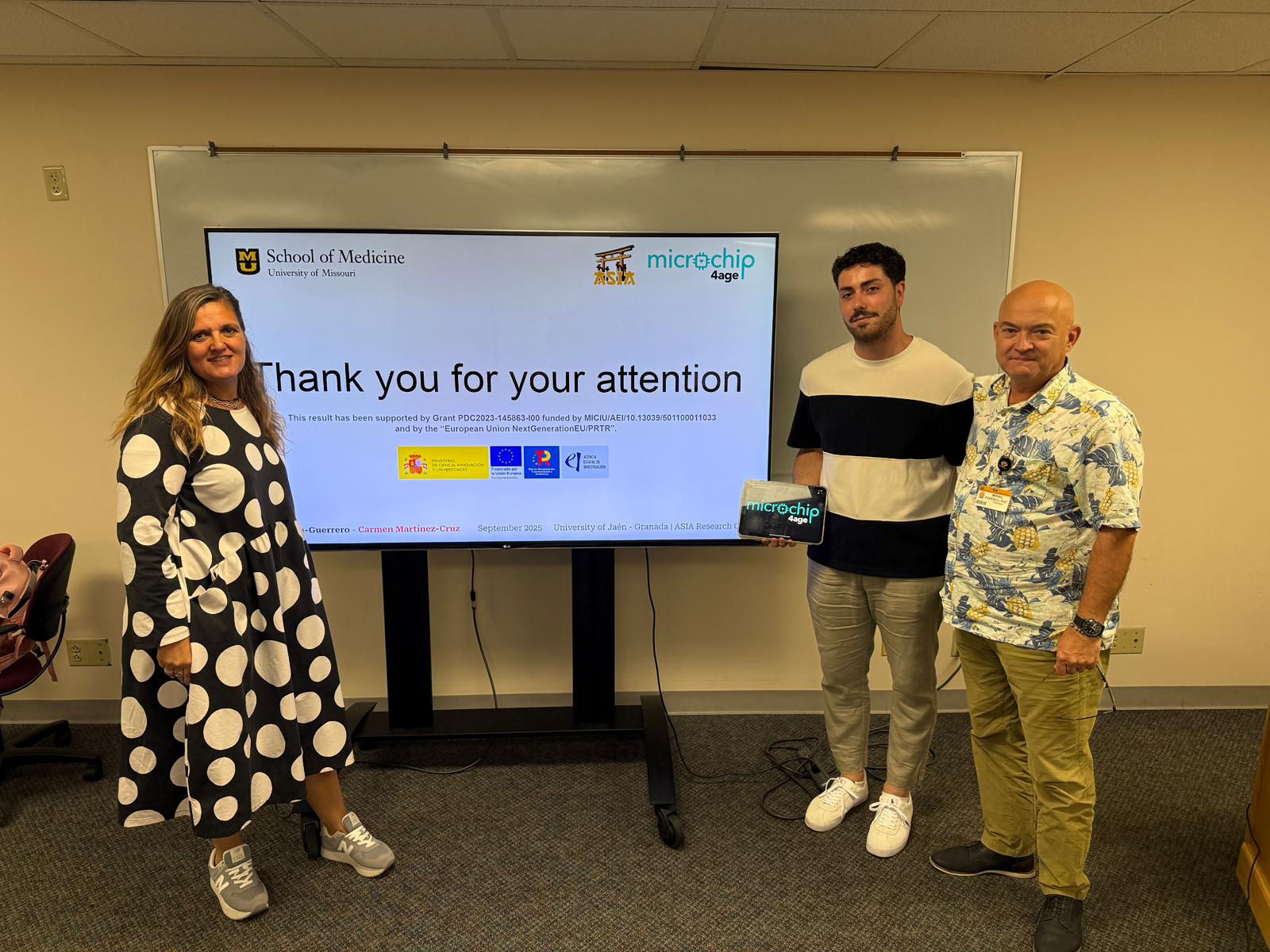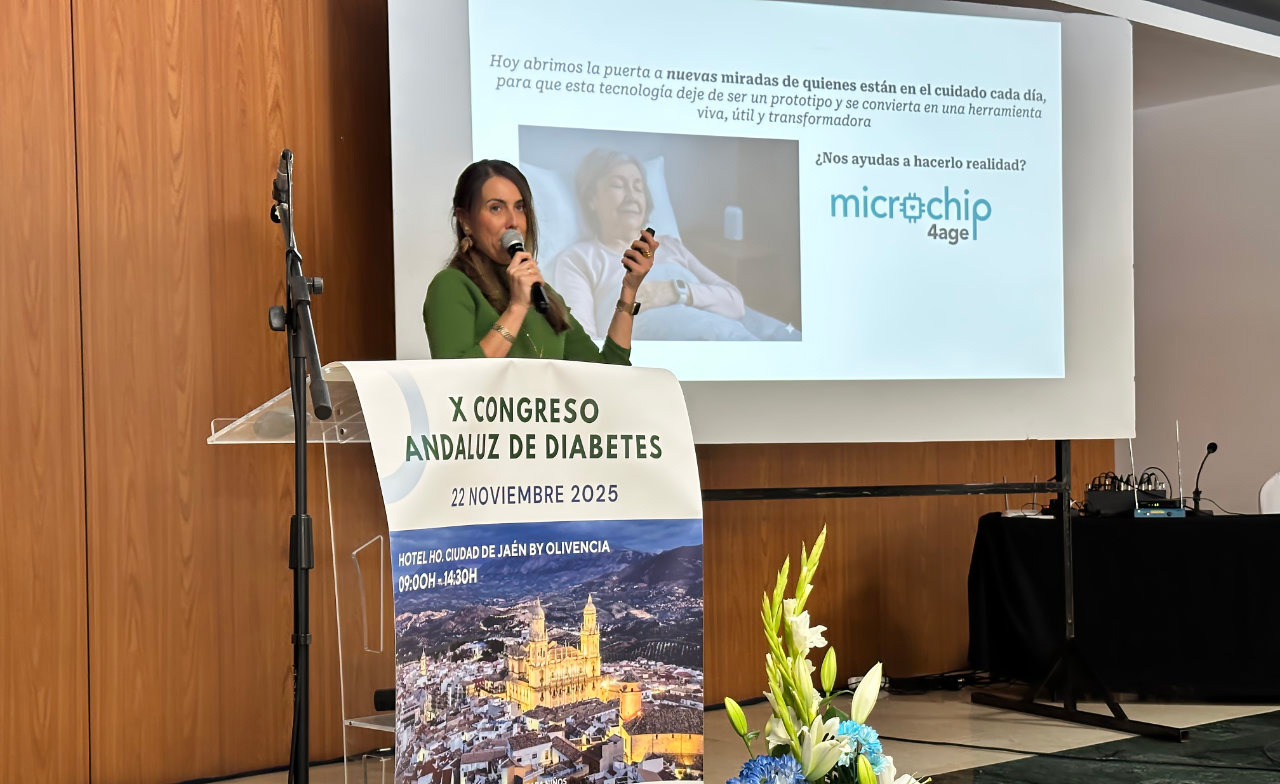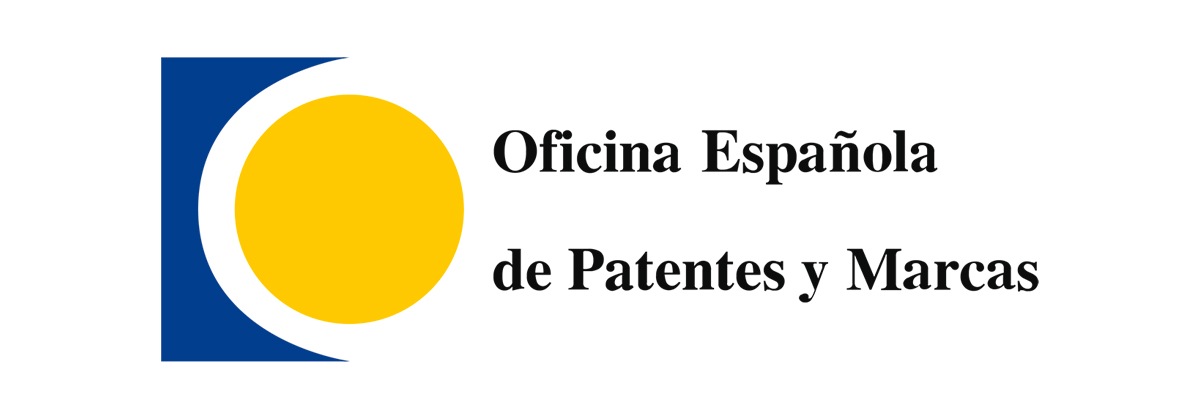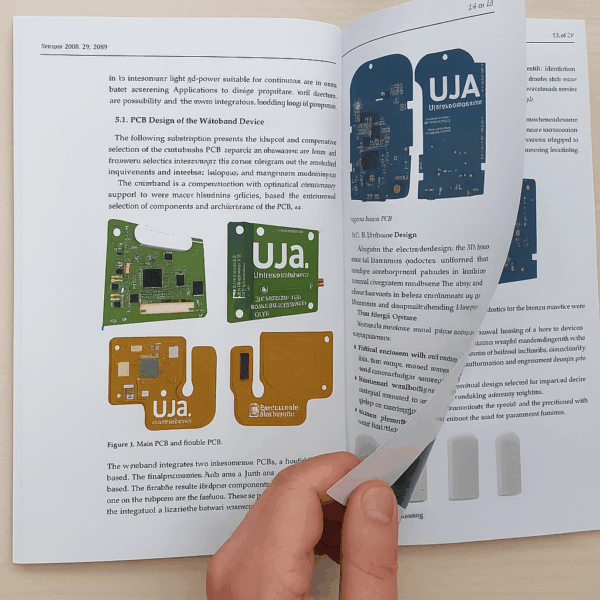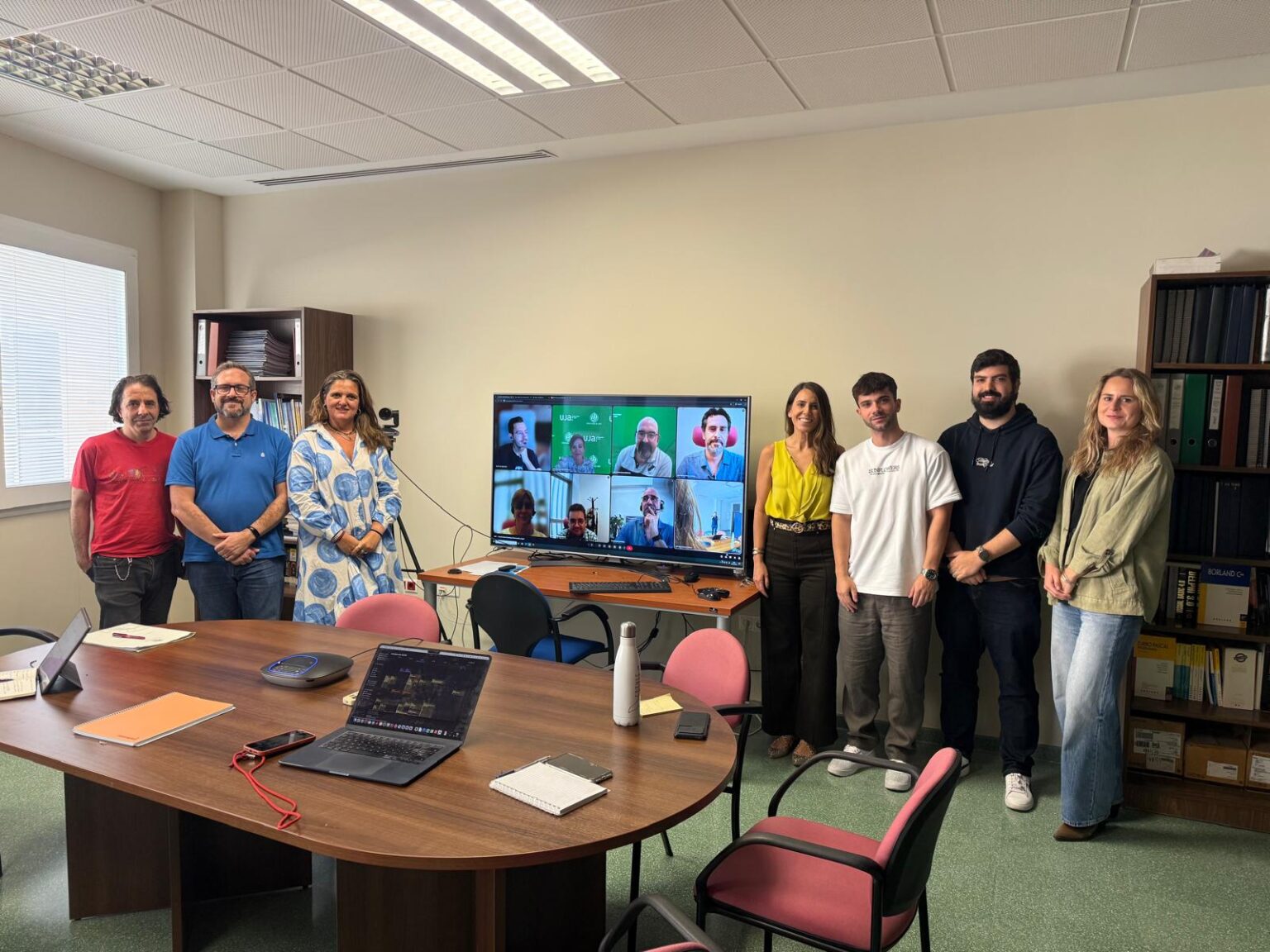The project shares its proposal based on large language models for the analysis and interpretation of clinical data in a seminar held at Mizzou’s School of Medicine.
Columbia (Missouri, USA), September 5, 2025 – The MicroChip4Age project, led by our ASIA research group at the University of Jaén, continues to strengthen its international dimension with the technical seminar “A New Proposal for Applying LLMs to Time Series Summarization” at the University of Missouri – Columbia School of Medicine.
The session was delivered by researchers Carmen Martínez Cruz and Juan F. Gaitán Guerrero, members of the MicroChip4Age team, who presented the project’s latest foundations and developments at the Department of Biomedical Informatics, Biostatistics and Medical Epidemiology, where Gaitán is currently conducting a research stay. This department is an international benchmark in teaching and research in health informatics, public health, and clinical data analysis.
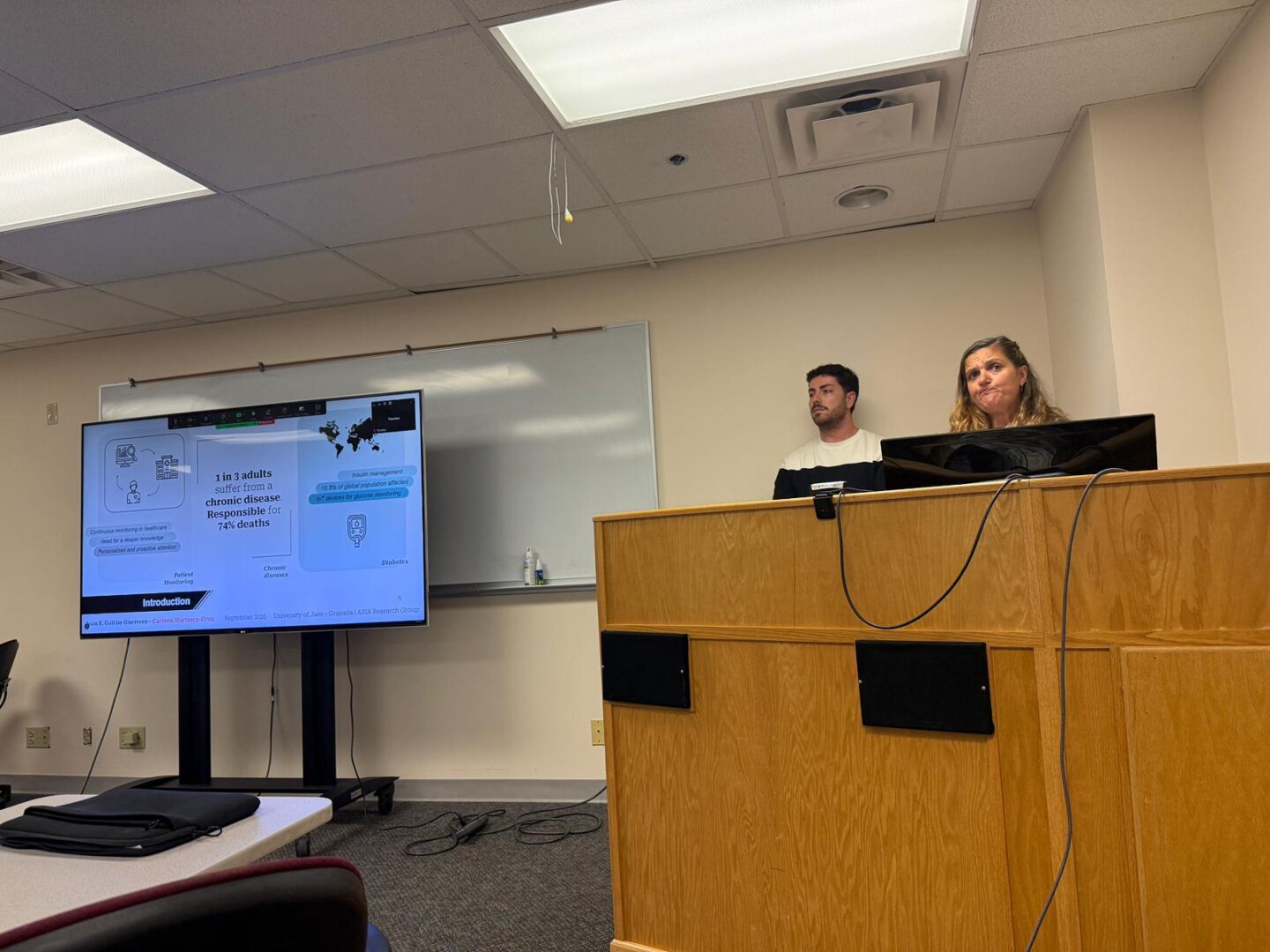
Artificial intelligence for well-being and decision-making
The seminar brought together healthcare professionals, students, and engineers in a multidisciplinary forum aimed at showcasing the technological solutions being developed at the University of Jaén to improve care for people with chronic conditions such as diabetes.
During the session, the team presented advances in the MicroChip4Age non-invasive monitoring system, with particular emphasis on one of its most innovative lines: the use of large language models to summarize clinical time-series data and generate understandable reports that can be used by healthcare professionals as a real-time decision support tool.
Accessible, inclusive, and transformative technology
One of the key topics addressed was the need for artificial intelligence applied to healthcare to be developed under principles of inclusivity, accessibility, and usability, ensuring that solutions equitably benefit all population groups, especially those at higher risk of technological exclusion.
This new milestone within MicroChip4Age reinforces the project’s commitment to combining ethical technology, responsible innovation, and real-world applicability, consolidating itself as a pioneering initiative in the design of intelligent systems for the respectful care of older adults and patients with chronic diseases.

